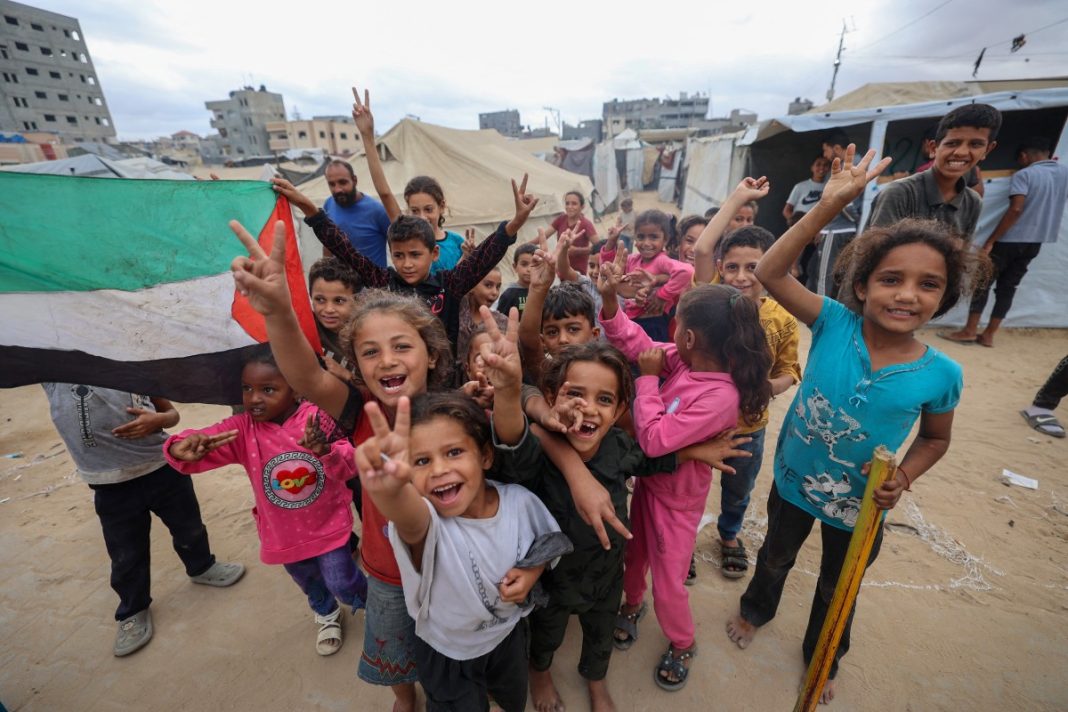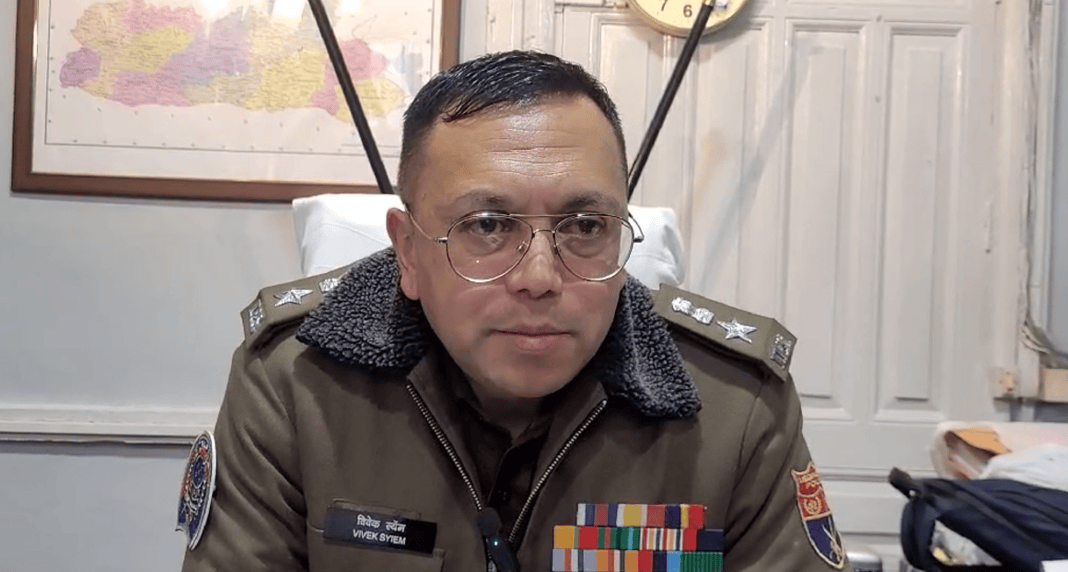Deir Al-Balah (Gaza Strip), Oct 13: All 20 remaining living hostages held in Gaza and hundreds of Palestinian prisoners held by Israel walked free Monday as part of a ceasefire pausing two years of war that decimated the Gaza Strip and killed tens of thousands of Palestinians.
Hamas said Monday that it will release the bodies of four of the 28 deceased Israeli captives, though it was not immediately clear when the rest of the bodies would be sent back to Israel. Israel says it has released more than 1,900 Palestinian prisoners as part of the Gaza ceasefire deal.

Speaking to parliament, Israeli Prime Minister Benjamin Netanyahu declared he was “committed to this peace,” raising hopes that the ruinous war, which triggered other conflicts in the Middle East and had left scores of captives in militant hands, might come to an end. But fundamental questions remain over when and how.
Cheering crowds greeted buses of released prisoners in the West Bank and Gaza, while families and friends of the hostages gathered in a square in Tel Aviv, Israel, cried out with joy and relief as news arrived that the captives were free.
US President Donald Trump flew to the region and addressed the Knesset, the Israeli parliament. He was later to head to Egypt for a summit to discuss the US-proposed deal and postwar plans with other leaders.
Speaking ahead of Trump’s address in the Knesset, Netanyahu pledged that he was “committed to this peace.”
He added: “Today, the Jewish calendar marks the end of two years of war.”
While major questions remain about the future of Hamas and Gaza, the exchange of hostages and prisoners raised hopes for ending the deadliest war ever between Israel and the militant group. The ceasefire is also expected to see a surge of humanitarian aid into Gaza, parts of which are experiencing famine.
The war began when Hamas-led militants launched a surprise attack on southern Israel on Oct. 7, 2023, in which some 1,200 people, mostly civilians, were killed and 251 taken hostage.
In Israel’s ensuing offensive, more than 67,000 Palestinians have been killed, according to Gaza’s Health Ministry, which doesn’t differentiate between civilians and combatants but says around half the dead were women and children. The ministry is part of the Hamas-run government, and the UN and many independent experts consider its figures the most reliable estimate of wartime casualties.
The toll is expected to grow as bodies are pulled from rubble previously made inaccessible by fighting.
The war has destroyed large swaths of Gaza and displaced about 90 per cent of its some 2 million residents. It has also triggered other conflicts in the region, sparked worldwide protests and led to allegations of genocide that Israel denies.
“Much of Gaza is a wasteland,” UN humanitarian chief Tom Fletcher told the AP on Sunday.
Hostages and prisoners released
Tens of thousands of Israelis watched the hostage transfers at public screenings across the country. In Tel Aviv, families and friends of the hostages broke into wild cheers as television channels announced that the first group was in the hands of the Red Cross.
The freed hostages, all men, were later reunited with their families, and footage released by Israeli authorities showed tearful reunions.
The bodies of the remaining 28 dead hostages are also to be handed over as part of the deal, although the exact timing remained unclear.
Palestinians in the occupied West Bank rejoiced as buses carrying dozens of released prisoners from Ofer Prison arrived in Beitunia, near Ramallah, as Israel began releasing more than 1,900 prisoners and detainees as part of the ceasefire deal.
Later, giant crowds gathered to greet buses carrying other prisoners arriving at Nasser Hospital in Gaza’s southern city of Khan Younis.
The prisoners include 250 people serving life sentences for convictions in attacks on Israelis, in addition to 1,700 seized from Gaza during the war and held without charge. They will be returned to the West Bank or Gaza or sent into exile.
More than 150 prisoners were sent to Egypt by Israel and arrived at Gaza’s Rafah crossing with Egypt early Monday afternoon, according to an Egyptian official, who had direct knowledge of the deal’s implementation. He spoke on condition of anonymity because he was not authorised to brief the media. (AP)




